Iran Sentences Olympiad Winner To Prison

Ali Ramazani, a prominent figure in Iran's academic community and winner of an international Olympiad, has been sentenced to three years and seven months in prison.

Ali Ramazani, a prominent figure in Iran's academic community and winner of an international Olympiad, has been sentenced to three years and seven months in prison.
Ramazani, known for his achievements as a member of the Iranian National Team in the Microelectronics Olympiad has been convicted of charges including "conspiracy and collusion against national security and propaganda against the Islamic Republic."
Ramazani was arrested on October 16 by agents of the Ministry of Intelligence at his private residence, allegedly in connection with student protests.
Despite his academic accolades, including winning the Best Bachelor Thesis Award from the Institute of Electrical and Electronics Engineers in 2021, Ramazani has been subject to what his supporters claim are fabricated charges.
The incident reflects a concerning trend in Iran, where elite students have faced unjust imprisonment. Notably, Ali Younesi and Amir Hossein Moradi, both award-winning science students from Sharif University, were arrested in April 2020. They were accused of possessing explosive devices and alleged ties to "counter-revolutionary groups." However, the claims are widely viewed as part of trumped-up charges.
Younesi and Moradi, recipients of prestigious awards including gold and silver medals at international and national Olympiads, have been subjected to severe torture and prolonged solitary confinement. Despite their academic achievements, they were both given 16 years in prison.
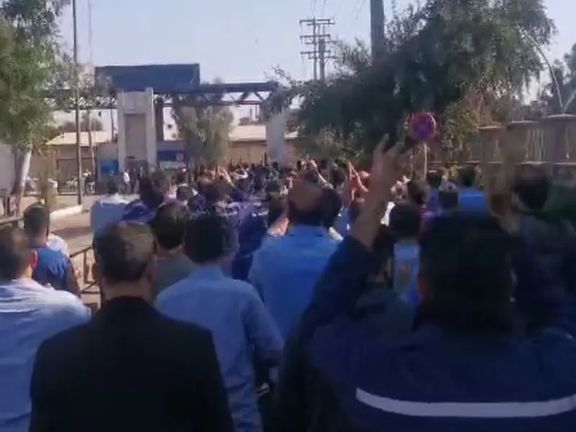
Workers at Iran's Ahvaz National Steel Group continued to strike for the second consecutive day on Wednesday over the suspension of several dissenting colleagues and the incomplete implementation of the job classification plan.
Managers of the industrial group suspended dozens of protesting workers, fueling discontent among the workforce. In September, 17 workers were sentenced to flogging, imprisonment, and fines, highlighting the authorities' crackdown on dissent, after taking part in protests.
Despite promises from management, the correct implementation of the job classification plan, pledged to be reflected in December salaries, has yet to materialize, further exacerbating tensions.
This round of strikes is not the first for the steel workers who have repeatedly taken strike action to express their grievances over recent months.
The Iranian National Steel Industrial Group, previously under the control of Amir Mansour Aria's investment firm, has transitioned to private ownership following legal proceedings and Aria's execution for embezzlement.
Workers across various industries, activists from different guilds, and retirees have been participating in numerous protests in recent months, seeking improvements in their working conditions.
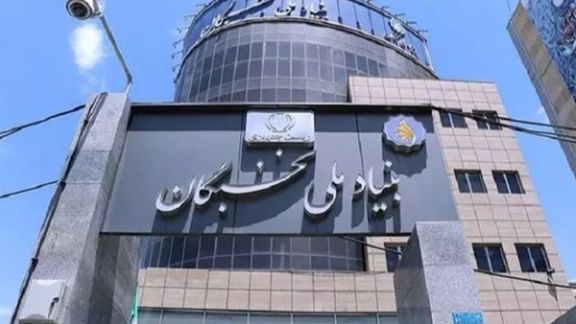
Iranian authorities have taken new measures involving the passport and immigration authority to prevent the ever-increasing emigration of experts from the country as the country’s brightest minds flee the regime.
Salman Seyed Afghahi, the deputy head of the National Elites Foundation told the semi-official Mehr news agency Monday that the foundation has made arrangements to report the entry and exit of all high level professional migrants to the police-run authority as many seek better work in areas such as teaching and medicine.
Afghahi alleged that emigration facilitation businesses were charging too little, between $1,000 or $2,000 for services that should normally cost $10,000 and claimed that “there is definitely a system that funds them”.
The foundation is an organization under the presidency formed to identify and support experts, innovators, and gifted students including those in religious seminaries.
In a statement Tuesday, the foundation responded to the media uproar about involving the authorities, which fall under police control, claiming that this was a service “to prevent the profit-seekers’ abuse and protect the intellectual and material rights of the elites” and to “facilitate entry and exit” of the elite and their visa issues as ordered by the President.
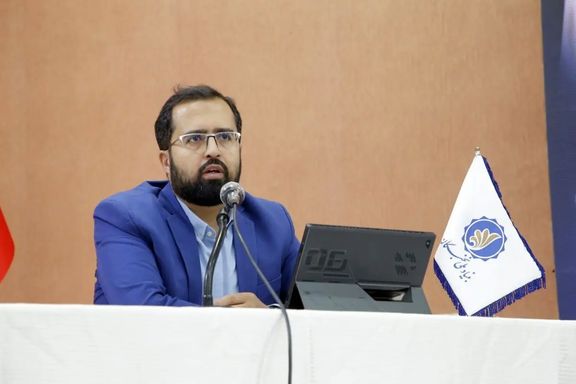
Denying any crisis as suggested by some medical officials, Afghahi also claimed that the rate of emigration of medical professionals from Iran has been falling and is lower than many developed countries such as Germany. However, just this month, the secretary-general of the Iranian Medical Society, Mohammed-Reza Zafarqandi, warned the medical sector was heading for a deep crisis.
He is not alone. Saeid Moidfar, chairman of the Iranian Sociological Association, recently warned that Iran is on the threshold of a very intense wave of emigration, Iranians feeling there is no future in the country with economic and social conditions only worsening and corruption and crime on the rise.
Echoing his sentiments, Mohammad-Reza Zafarghandi, secretary general of the non-profit Iran Medical Council, has repeatedly warned about the high interest in emigration among medical students and professionals.
He said last week that around 80 percent of medical students were thinking of leaving the country. According to Zafarghandi, medical professionals’ application to the Council for good standing certificates, required by many employers abroad, has grown by several fold compared to before.
Ali Akbar Salehi, Iran's former top nuclear official, claimed a few weeks ago that every elite’s emigration costs the country $5m in human capital. According to Salehi, 60,000 elite Iranians left the country in 2019 and the emigration of the elite in a one-year period between 2014-2015 cost the country over $38b in human capital.
In September, Dr. Saeid Moidfar, chairman of the Iranian Sociological Association, told the reformist Jamaran news website that in the wake of the Women, Life, Freedom movement, Iranians feel the future is bleak. State crackdowns on dissent, on women’s rights and an ever deepening financial depression have left many Iranians living in fear and poverty.
“You reach the point where you think this is no longer a good place to live, and you should leave as soon as you can when you feel you are in a country where you are not involved in the decision making system, the country is not being run based on sound principles, your overall economic misery is increasing by the day, and social values are being sullied,” Moidfar said in a bold stand against the government.
Iran’s economy has suffered years of mismanagement and international sanctions, which emanated from its foreign policy and ongoing nuclear program. Iran’s currency has fallen 12-fold since 2018 and more than 6000-fold since the 1979 revolution. In 1978, one US dollar would buy 70 rials and now the exchange rate is close to 500,000.
“Since 2017 the country has been in deep crisis. All prospects of change have been lost and there is no hope for the future of this country any longer,” he added.
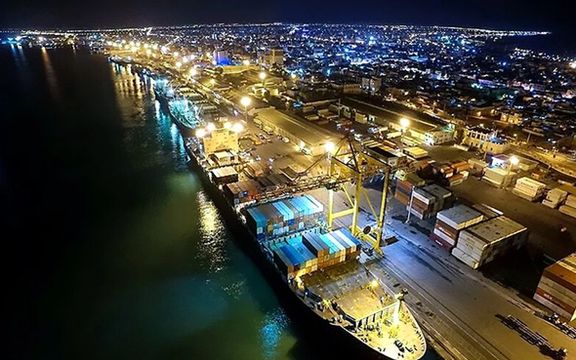
As Iran continues to work to evade global sanctions, one of the country's leading figures has admitted the regime is deliberately concealing its maritime activities to avoid scrutiny.
Jalil Eslami, Deputy Head of Iran's Ports and Maritime Organization (IPMO), emphasized the need for discretion regarding the ports where Iran faces traffic restrictions, saying, "Considering the current conditions, Iranian ships face restrictions on traffic in some ports, but it is not a good move to announce the names of those ports."
Eslami's statement follows the recent ban on Iranian ships at India's Mundra port due to sanctions measures and in the wake of earlier disclosures by Iranian transportation officials regarding maritime challenges globally.
While India has historically maintained friendly relations with Iran and has been a significant trading partner, it has also adhered to international sanctions regimes, particularly those imposed by the United Nations. The recent ban will have major economic consequences.
Masoud Daneshmand, a member of the board of directors at the Center of Transport Institutions, echoed the government's concerns, emphasizing the significant impact of sanctions on Iranian shipping assets.
In March, the United States imposed new sanctions targeting entities associated with Iran's shipping and petrochemical sectors, aligning with previous measures aimed at Iran's oil, banking, and transportation industries. Additionally, a cautionary advisory issued by the Office of Foreign Assets Control in 2019 warned global entities involved in shipping petroleum from Iran about potential repercussions.
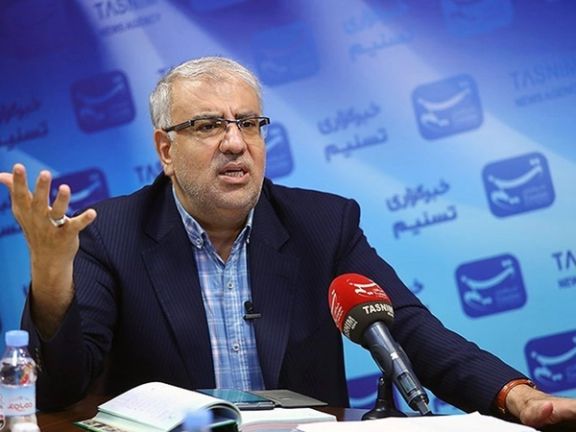
Iran's Oil Minister Javad Owji has blamed Israel for last week's attack on Iranian gas pipelines amid an ongoing shadow war between the two nations.
The attack, initially labeled by Owji as a "terrorist act of sabotage," targeted Iran's primary south-north gas pipeline network and resulted in two explosions on February 14.
Owji disclosed, "The enemy intended to disrupt households' gas supplies... but within two hours our colleagues worked to counter the Israeli plot which only damaged several pipes."
Israel's track record of targeting Iran's military and nuclear installations, including cyberattacks on the oil ministry's servers, has long been highlighted. However, the attack on a segment of Iran's energy infrastructure, crucial to industries and factories, is perceived as an escalation in the clandestine conflict, according to officials and analysts. The office of Israel’s Prime Minister, Benjamin Netanyahu, has not commented.
Western officials say the gas pipeline attacks attributed to Israel necessitated a profound understanding of Iran’s infrastructure and meticulous coordination, especially since two pipelines were struck across multiple locations simultaneously.
Despite Iran's denial of direct involvement in attacks against Israel and the United States, the nation's support for and arming of proxy militias actively engaged in conflicts involving both countries, such as the Houthis in Yemen, Hezbollah in Lebanon, and militants in Iraq and Syria, has been underscored. Iran has also been implicated in supporting Hamas and other Palestinian factions.
In December, a hacking group, alleged by Iran to be affiliated with Israel, claimed accountability for a cyber assault that crippled almost 70% of Iran's fuel stations.
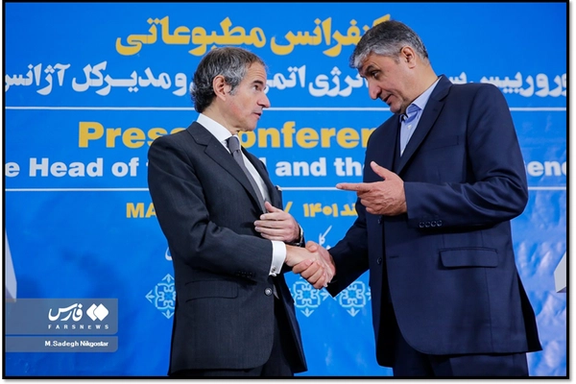
Iran's nuclear chief on Wednesday dismissed a suggestion that the head of the UN nuclear watchdog Rafael Grossi would visit next month but instead invited Grossi to a conference in Tehran in May.
Grossi said this week Iran was continuing to enrich uranium well beyond the needs for commercial nuclear use and said he planned to visit Tehran next month to tackle "drifting apart" relations between the International Atomic Energy Agency (IAEA) and the Islamic Republic.
But Mohammad Eslami said a visit next month was unlikely due to a "busy schedule" without giving further clarification. "Iran's interactions with the IAEA continue as normal and discussions are held to resolve ambiguities and develop cooperation," he said at a weekly press conference in Tehran.
Eslami said Grossi had been invited to attend Iran's first international nuclear energy conference in May.
Speaking to Reuters on Monday, Grossi said while the pace of uranium enrichment had slowed slightly since the end of last year, Iran was still enriching at an elevated rate of around 7 kg of uranium per month to 60-percent purity.
Enrichment to 60 percent brings uranium close to weapons grade and is not necessary for commercial use in nuclear power production. Iran denies seeking nuclear weapons, but no other state has enriched to that level without producing them.
Under the defunct 2015 JCPOA agreement with world powers, Iran can enrich uranium only to 3.67 percent. After then-President Donald Trump pulled the US out of that deal in 2018 and re-imposed sanctions, Iran breached and moved well beyond the deal's nuclear restrictions.
The UN nuclear watchdog said the 2015 nuclear deal "is all but disintegrated."